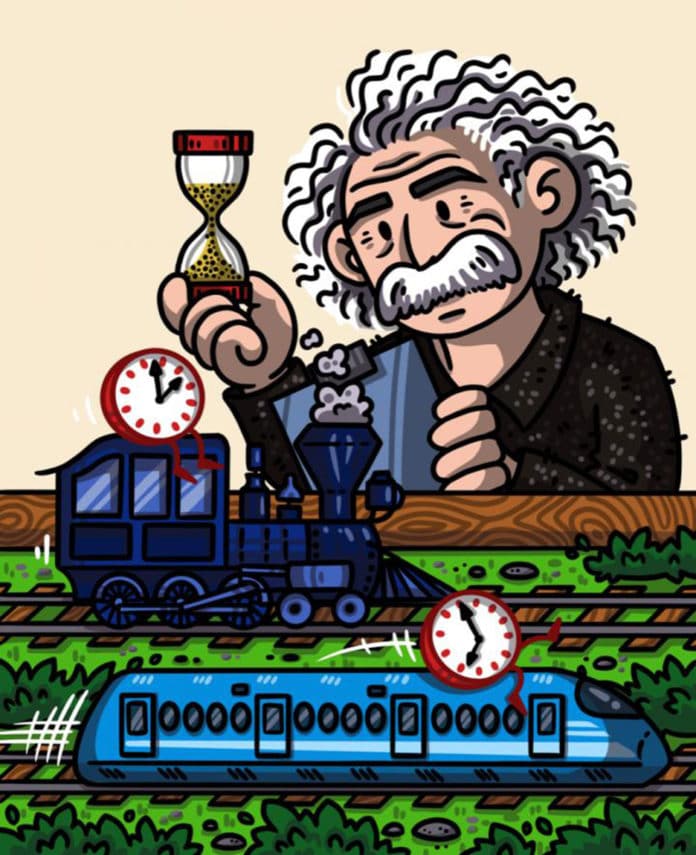A new study by Dartmouth College, Saint Anselm College, and Santa Clara University considered quantum effects beyond Albert Einstein’s theory of relativity to make a new prediction about the nature of time. It suggests that the phenomenon of quantum mechanics known as superposition, can significantly impact timekeeping in high-precision clocks.
During the study, scientists have shown that superposition leads to a correction in atomic clocks known as “quantum time dilation.”
Alexander Smith, an assistant professor of physics at Saint Anselm College and adjunct associate professor at Dartmouth College, said, “Whenever we have developed better clocks, we’ve learned something new about the world. Quantum time dilation is a consequence of quantum mechanics and Einstein’s relativity, thus offering a new possibility to test fundamental physics at their intersection.”
In the mid-1900s, Albert Einstein introduced a revolutionary image of space and time by demonstrating that the time experienced by a clock relies upon how quickly it is moving – as the speed of a clock expands, the rate at which it ticks decreases. This was a radical departure from Sir Isaac Newton’s absolute notion of time.
Quantum mechanics, the theory of motion overseeing the atomic realm, allows a clock to move as though it were simultaneously traveling at two distinct speeds: a quantum “superposition” of speeds. The examination paper considers this possibility and gives a probabilistic theory of timekeeping, which prompted quantum time dilation.
Quantum mechanics, the theory of motion governing the atomic realm, allows a clock to move as if it were simultaneously traveling at two different speeds: a quantum superposition of speeds.
To develop the new theory, the team combined modern techniques from quantum information science with an approach developed in the 1980s that explains how time might emerge from a quantum theory of gravity.
Mehdi Ahmadi, a lecturer at Santa Clara University who co-authored the study, said, “Physicists have sought to accommodate the dynamical nature of time in quantum theory for decades. In our work, we predict corrections to relativistic time dilation, which stems from the fact that the clocks used to measure this effect are quantum mechanical.”
Like carbon dating depends on decaying atoms to decide the time of organic objects, the lifetime of an excited atom goes about as a clock. If such an atom moves in a superposition of various paces, at that point, its lifetime will either increment or decrease, relying upon the idea of the superposition comparative with a particle moving at a different speed.
The correction to the atom’s lifetime is so small that it would be impossible to measure in terms that make sense at the human scale. But the ability to account for this effect could enable a test of quantum time dilation using the most advanced atomic clocks.
Journal Reference:
- Smith, A.R.H., Ahmadi, M. Quantum clocks observe classical and quantum time dilation. Nat Commun 11, 5360 (2020). DOI: 10.1038/s41467-020-18264-4
